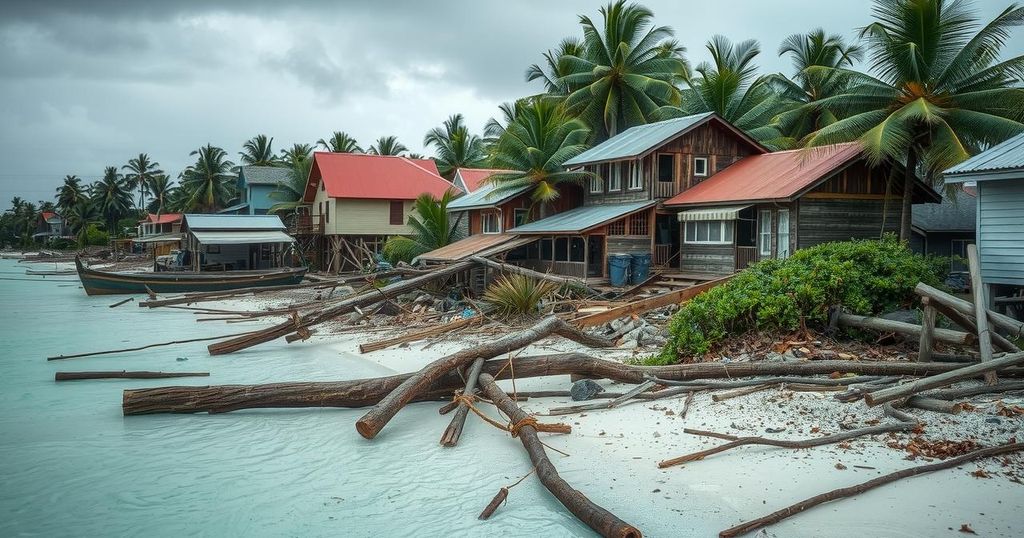Impact of Tropical Cyclone Chido on Mayotte: A Humanitarian Crisis in the Making
Tropical Cyclone Chido, which struck Mayotte on 14 December 2024, has been classified as the strongest storm in over 90 years, resulting in at least 22 deaths and 1,500 injuries. The cyclone severely damaged critical infrastructure and affected approximately 100,000 residents living in precarious housing conditions, which were already vulnerable prior to its landfall.
Tropical Cyclone Chido, a significant weather event in the southwest Indian Ocean, began as a tropical depression on 5 December 2024 and intensified into a Category 4 cyclone by 12 December, boasting maximum wind speeds of 250 km/h. Landfall occurred on 14 December in Mayotte, where the cyclone caused extensive destruction, particularly impacting vital infrastructure such as hospitals, the airport, roads, and essential services like electricity and water supply. As of 18 December, the cyclone has been attributed to at least 22 fatalities and approximately 1,500 injuries, with many individuals reported missing, underscoring the profound human toll and ongoing crisis following the disaster. The region had been experiencing vulnerabilities prior to the cyclone, with an estimated 40% of the structures deemed precarious. This storm, which is the most potent to strike Mayotte in over nine decades, has further exacerbated the challenging living conditions for a significant portion of the population, as around 100,000 residents were already inhabiting compromised homes. Mayotte’s total population is approximately 320,000, although estimates suggest there may be an additional 200,000 individuals, primarily from nearby Comoros, living in the region without legal status.
Tropical Cyclone Chido made an unprecedented impact in Mayotte, a French island located in the Indian Ocean. The cyclone developed rapidly, demonstrating the increasing severity of storm systems in this area, which are exacerbated by climate change. With Mayotte’s infrastructure already vulnerable, the cyclone’s landfall revealed significant weaknesses in housing and public services. The event not only raises immediate humanitarian concerns but also highlights broader trends of climate risks affecting island communities, requiring urgent attention from regional and international stakeholders for recovery and resilience building.
In conclusion, Tropical Cyclone Chido has left an indelible mark on Mayotte, having caused catastrophic damage and a tragic loss of life. With significant portions of the population already living in substandard conditions, the cyclone’s effects further underline the necessity for immediate relief efforts and long-term solutions to address infrastructure vulnerabilities. This disaster serves as a grim reminder of the increasing intensity of tropical storms and the urgent need for comprehensive strategies to enhance community resilience in the face of climate change.
Original Source: reliefweb.int




Post Comment